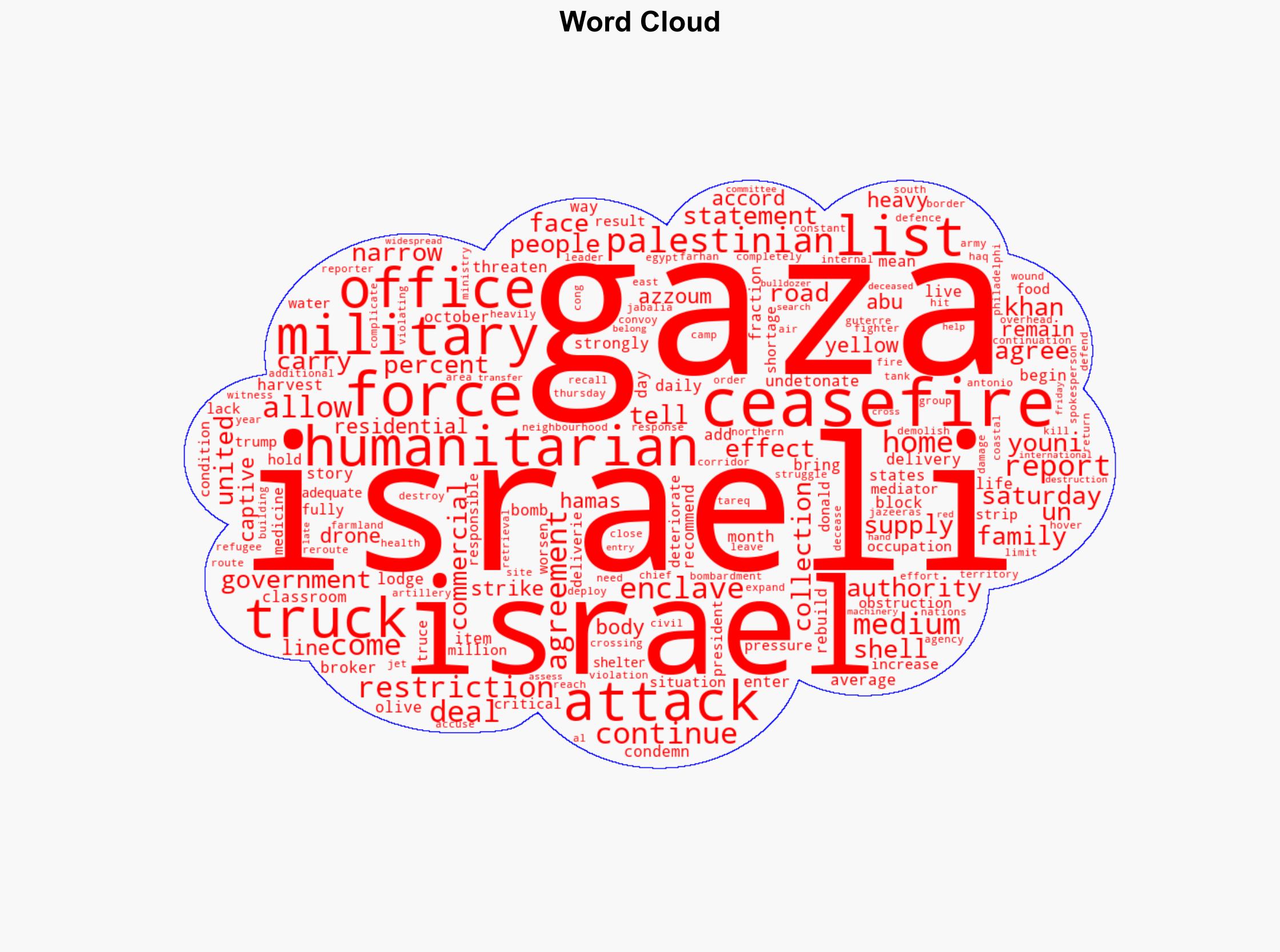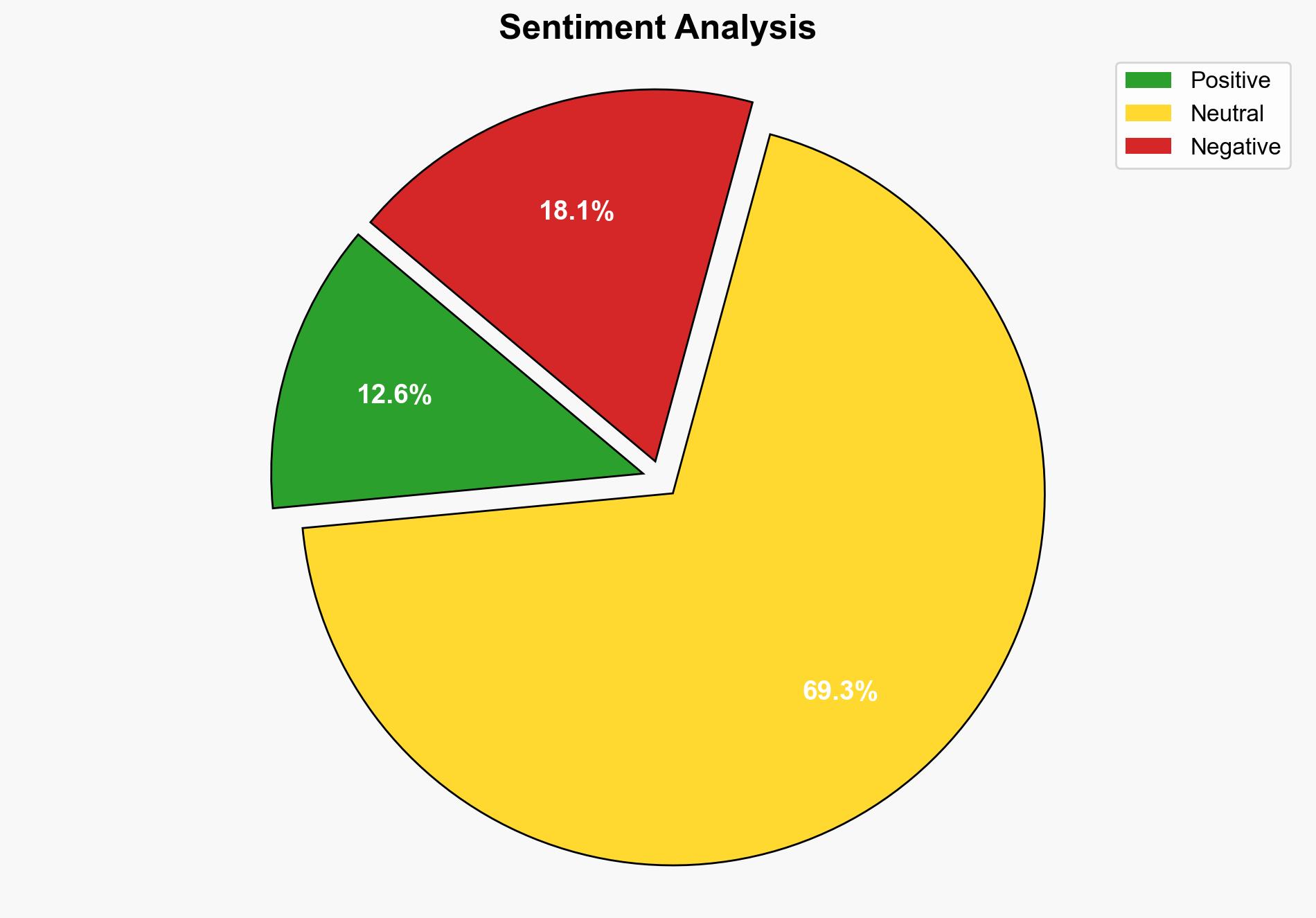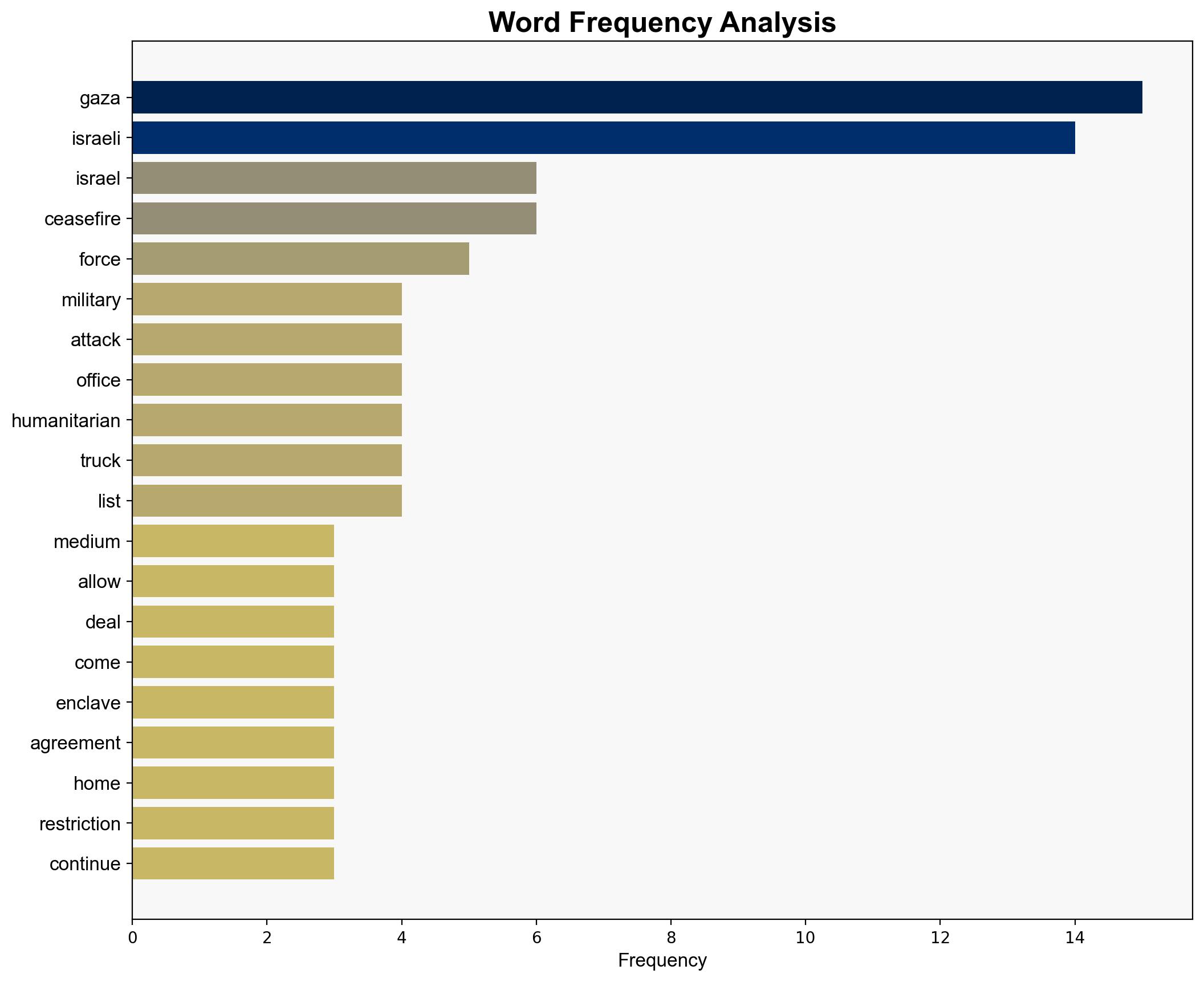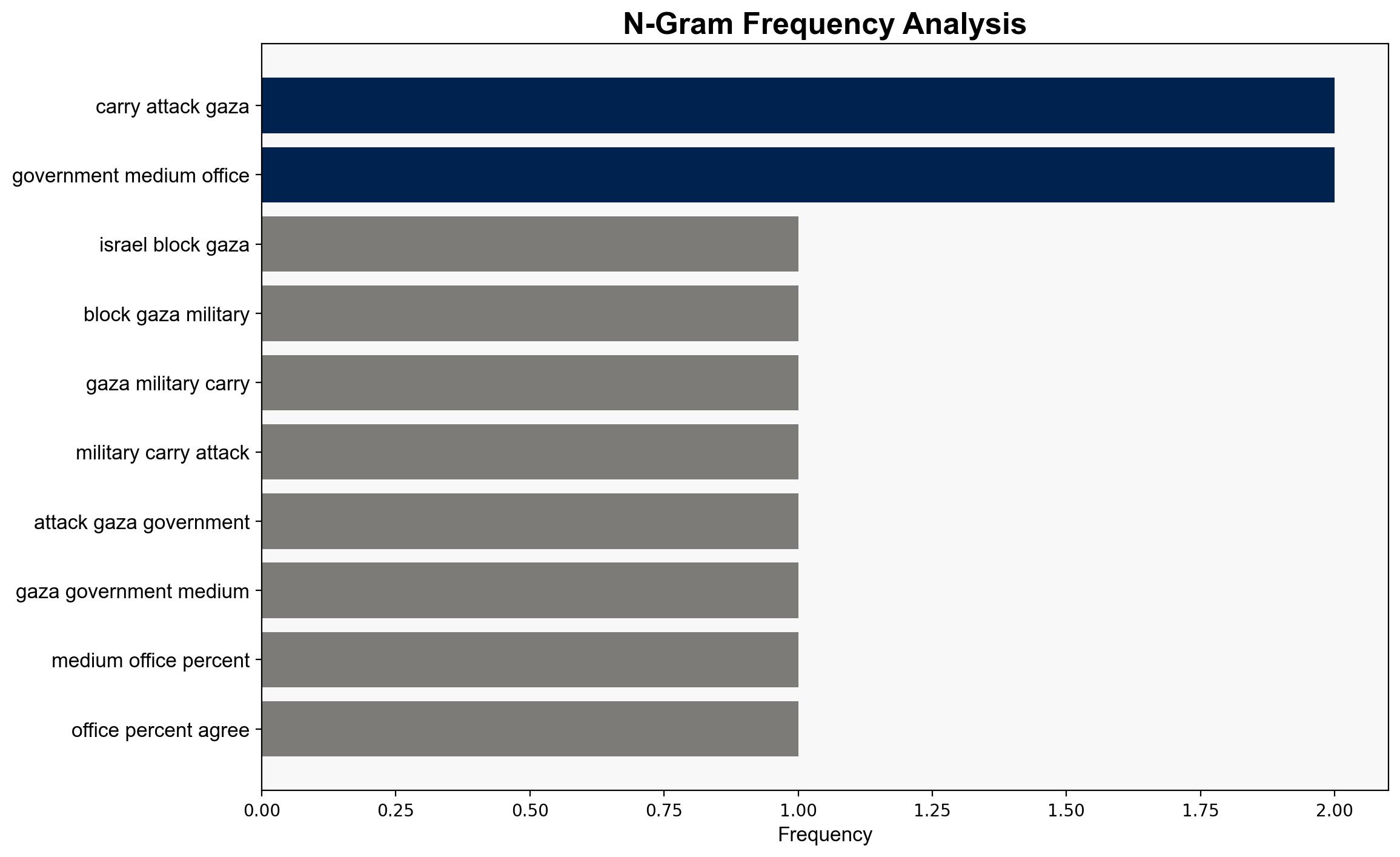Israel still blocking most Gaza aid as military carries out more attacks – Al Jazeera English
Published on: 2025-11-01
Intelligence Report: Israel still blocking most Gaza aid as military carries out more attacks – Al Jazeera English
1. BLUF (Bottom Line Up Front)
The most supported hypothesis is that Israel is maintaining strict control over aid to Gaza as a strategic measure to pressure Hamas and ensure security, despite international calls for increased humanitarian access. Confidence level: Moderate. Recommended action: Engage in diplomatic efforts to facilitate humanitarian aid while addressing security concerns.
2. Competing Hypotheses
1. **Hypothesis 1**: Israel is blocking aid to Gaza primarily as a security measure to prevent resources from reaching Hamas, which it views as a terrorist organization. This aligns with Israel’s historical security posture and concerns over Hamas’ military capabilities.
2. **Hypothesis 2**: Israel’s blockade is a form of political leverage to pressure Hamas into compliance with ceasefire terms and to negotiate the return of Israeli captives. This hypothesis considers the blockade as a negotiation tool rather than purely a security measure.
Using Analysis of Competing Hypotheses (ACH), Hypothesis 1 is better supported by the consistent Israeli narrative of security concerns and the ongoing military actions despite the ceasefire. Hypothesis 2 is less supported due to the lack of direct evidence linking the blockade to specific negotiation outcomes.
3. Key Assumptions and Red Flags
– **Assumptions**: It is assumed that Israel’s primary motivation is security, and that Hamas poses a significant threat. Another assumption is that international pressure can influence Israeli policy.
– **Red Flags**: The lack of transparency in Israel’s decision-making process raises questions about the true motivations behind the blockade. The potential for misinformation from both sides complicates the analysis.
– **Blind Spots**: The internal political dynamics within Israel and Gaza are not fully explored, which could impact the situation.
4. Implications and Strategic Risks
– **Humanitarian Impact**: Continued blockade exacerbates the humanitarian crisis in Gaza, potentially leading to increased international condemnation and pressure on Israel.
– **Geopolitical Tensions**: The situation could escalate tensions between Israel and neighboring countries, particularly if perceived as a violation of international agreements.
– **Security Risks**: Restricting aid could fuel further unrest in Gaza, potentially leading to increased hostilities and undermining regional stability.
5. Recommendations and Outlook
- **Diplomatic Engagement**: Encourage international mediators to facilitate dialogue between Israel and Hamas to ensure humanitarian aid reaches civilians without compromising security.
- **Monitoring and Verification**: Implement mechanisms to monitor aid distribution to prevent misuse by militant groups.
- **Scenario Projections**:
– **Best Case**: Increased aid access leads to improved humanitarian conditions and reduced tensions.
– **Worst Case**: Continued blockade results in a humanitarian crisis, sparking wider regional conflict.
– **Most Likely**: Limited aid access persists, maintaining the status quo with periodic escalations.
6. Key Individuals and Entities
– **Benjamin Netanyahu**: Israeli leadership may influence the blockade policy.
– **Hamas Leadership**: Their response to the blockade and military actions is critical.
– **Antonio Guterres**: UN involvement in humanitarian efforts.
7. Thematic Tags
national security threats, humanitarian crisis, regional stability, geopolitical tensions




